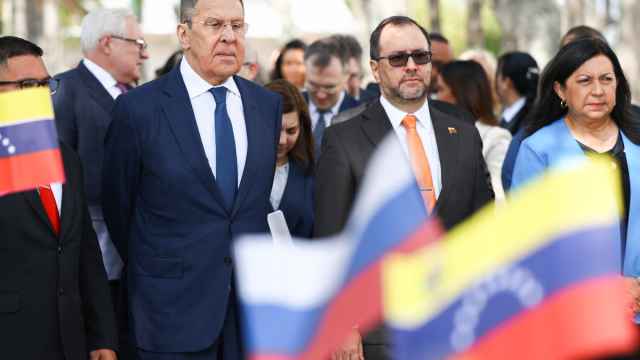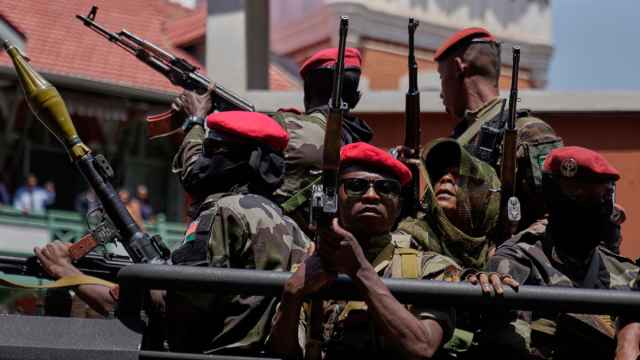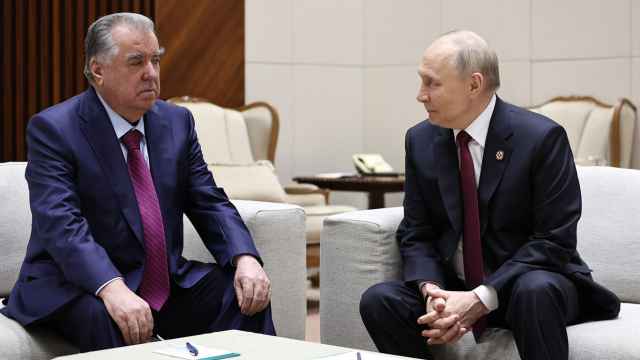A United Russia Duma deputy accused the United States of "fighting our country," after the Obama administration said it would boost funding for civil society and democracy in Russia.
Irina Yarovaya that U.S. plans to create a $50 million "civil society fund" are an attempt to meddle in Russia's internal politics and exert destabilizing pressure.
"The money … is being spent on fighting our country," she wrote in a statement posted on the ruling party's website Friday.
The Obama administration has asked Congress to create a "civil society fund" with money from a decades-old program initially designed to promote market economies in Eastern Europe and Central Asia, U.S. Ambassador Michael McFaul last week in Washington.
"When you talk to real human rights organizations and [find out] what they really need, they need that kind of support," McFaul said in a speech to an audience at the Peterson Institute for International Economics.
The announcement drew a mixed response from the human rights leaders and the opposition.
"We are forced to exist on foreign money," veteran human rights leader Lyudmila Alexeyeva said, The New York Times reported, citing an Interfax report. "Our government does not consider it necessary to spend money on maintaining the nongovernmental human rights community."
Sergei Mitrokhin, leader of the liberal Yabloko party, said the money would hurt the opposition, which has experienced a resurgence in recent months after Duma and presidential elections that were marred by allegations of fraud.
"It's very easy to present this as a kind of subversive activity. … Unfortunately, yes, this initiative would rather harm civil society and the opposition in Russia more than it would help," he said, The New York Times reported.
Kremlin-linked analysts said the additional funds were a mixed blessing for Russia, adding that $50 million wasn't enough to tip the political scales one way or the other.
Vyacheslav Nikonov, a Duma deputy from United Russia and head of the Kremlin-linked Politika Foundation, even warned that the proposal could prompt authorities to further restrict the flow of foreign money to domestic NGOs.
Vladimir Putin cracked down on NGOs during his 2000-08 tenure as president. And in the run-up to his return to the Kremlin, several organizations were portrayed as agents of the West.
Whether the funds will be used to discredit the regime or build genuine civil society will depend on who administers the funds, said Sergei Markov, a Kremlin-linked analyst who is vice president of the Plekhanov Institute of Economics.
"Who will distribute the funds, an idealist or a Russophobe?" he asked.
Markov said an idealist, someone who truly supports Russia's development, would give money to pro-business groups such as Delovaya Rossia and Opora or to Yabloko's good-governance programs. Political parties are barred from accepting foreign money.
A Russophobe, he said, would give money to opposition leader Alexei Navalny or Golos, the elections watchdog that has been the target of a government-sponsored smear campaign.
Iosif Diskin, an analyst and member of the Public Chamber, said the announcement had more to do with internal American politics than democracy in Russia.
"The Obama administration is trying to please critics who say he's not doing enough to promote democracy and civil society in Russia," Diskin said.
Although he decried "politicized" grants from the U.S. Agency for International Development, the entity that will likely distribute the grants, he said Russia benefits from most of what USAID provides.
"Ninety percent of their funding is positive," he said.
A Message from The Moscow Times:
Dear readers,
We are facing unprecedented challenges. Russia's Prosecutor General's Office has designated The Moscow Times as an "undesirable" organization, criminalizing our work and putting our staff at risk of prosecution. This follows our earlier unjust labeling as a "foreign agent."
These actions are direct attempts to silence independent journalism in Russia. The authorities claim our work "discredits the decisions of the Russian leadership." We see things differently: we strive to provide accurate, unbiased reporting on Russia.
We, the journalists of The Moscow Times, refuse to be silenced. But to continue our work, we need your help.
Your support, no matter how small, makes a world of difference. If you can, please support us monthly starting from just $2. It's quick to set up, and every contribution makes a significant impact.
By supporting The Moscow Times, you're defending open, independent journalism in the face of repression. Thank you for standing with us.
Remind me later.





